Books
Books
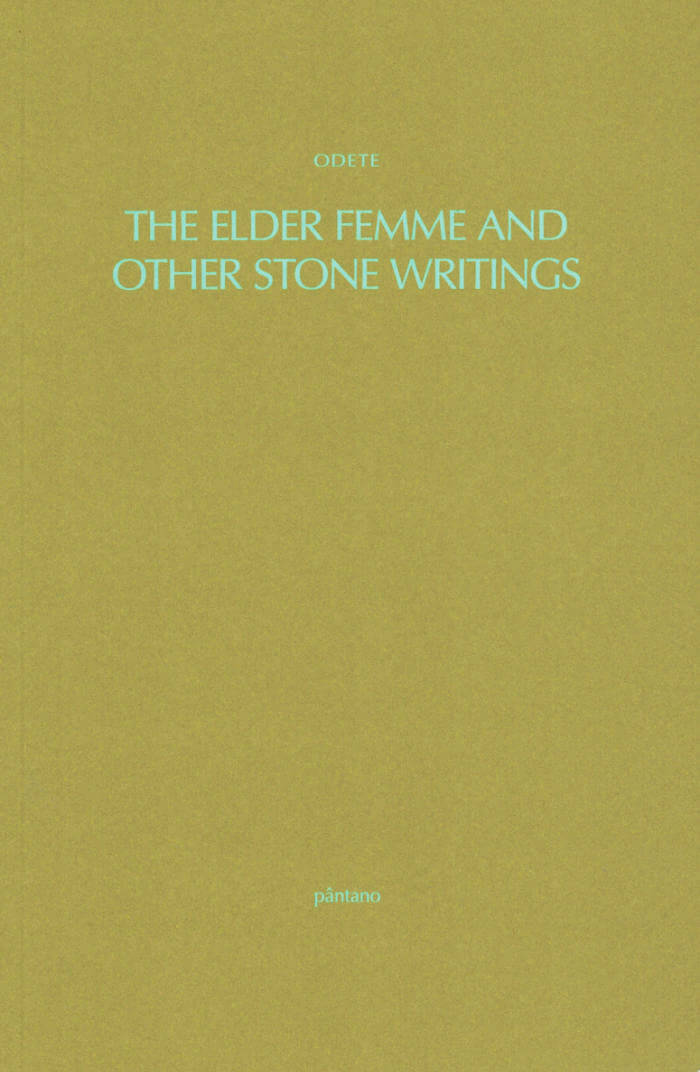
The Elder Femme and Other Stone Writings
The Elder Femme and Other Stone Writings is Odete’s first poetry collection. What starts as an essayistic archaeology searching for traces of transgender lives in mythical Antiquity soon branches off into myriad poetic and visual forms, from intimate free verses and scribbled notes to historical reports, earthy speculations, and magical enchantments. Weaving both English and her native Portuguese, there is a porosity and impermanence to Odete’s language. Equally evocative and testimonial, the book offers, in Odete’s own words, a “paranoid archaeology” that dilutes the borders between the personal and the collective. The Elder Femme works as portal, voicing those that came before and those still to come, as in its opening poem: “one day/ i’ll thank her/ my mother/ for teaching me/ how to glue/ shattered vases”.
Odete is a multidisciplinary artist working between the fields of music, visual arts, writing, performance, and theatre, born in Porto in 1995. Her writings have previously appeared in Trains Magazine, Tranfeminist Zine, and others. Her work in music includes the edited EPs and albums THE CONSEQUENCES OF A BLOOD LANGUAGE (Genome 6.66 Mbp, 2021); Water Bender (New Scenario, 2020); For those who are bored paranoid(Self-release, 2019); Mooring (Rotten: Fresco, 2019); and Matrafona(Naivety, 2018). Her performances have been presented at Teatro São Luiz (Lisbon), CTM Festival (Berlin), BOCA Biennial of Contemporary Arts, MAAT Museum (Lisbon), Galeria Municipal do Porto (Porto), and Teatro Municipal Campo Alegre (Porto). In 2020 she won the ReXform Award for performing arts, from which resulted the project On Revelations and Muddy Becomings on which her first book is based.
Published 2021.
150 copies, first edition, original in English and Portuguese bilingual

The Employees: A Workplace Novel of the 22nd Century
Funny and doom-drenched, The Employees chronicles the fate of the Six-Thousand Ship. The human and humanoid crew members complain about their daily tasks in a series of staff reports and memos. When the ship takes on a number of strange objects from the planet New Discovery, the crew becomes strangely and deeply attached to them, even as tensions boil toward mutiny, especially among the humanoids. Olga Ravn's prose is chilling, crackling, exhilarating, and foreboding. The Employees probes into what makes us human, while delivering a hilariously stinging critique of life governed by the logic of productivity.
Olga Ravn (born 1986) is a Danish novelist and poet. Her debut poetry collection I Devour Myself Like Heather appeared to critical acclaim in 2012. Alongside Johanne Lykke Holm she ran the feminist performance group and writing school Hekseskolen from 2015 to 2019. In collaboration with Danish publisher Gyldendal she edited a selection of Tove Ditlevsen's texts and books that relaunched Ditlevsen readership worldwide.
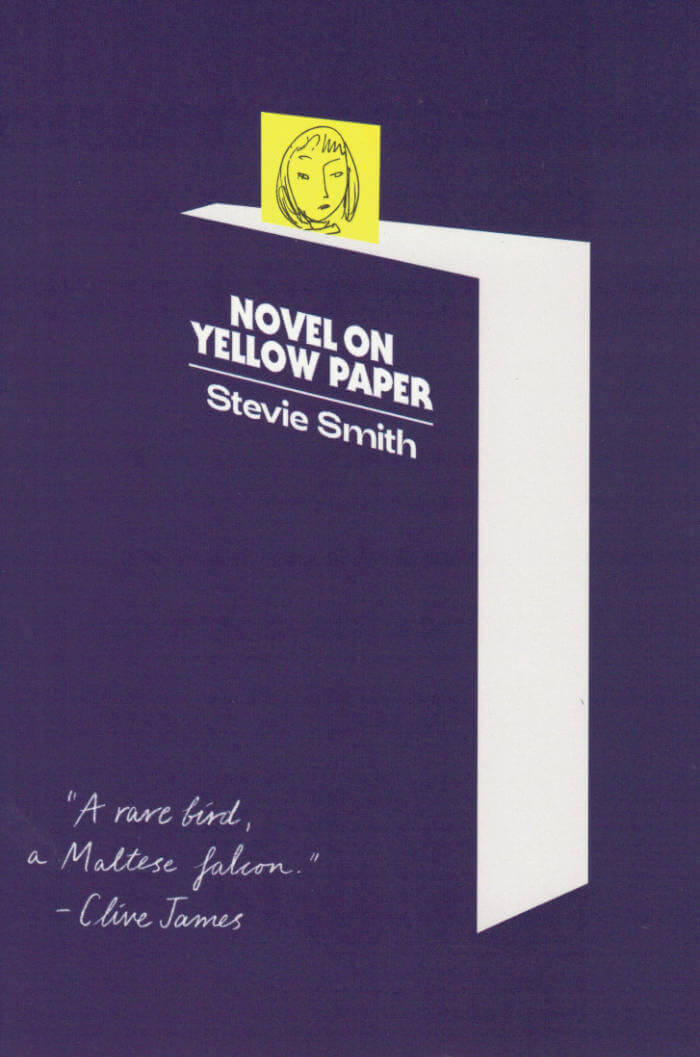
Novel On Yellow Paper
I am a forward-thinking girl, and don’t stay where I am. ‘Left right, be bright.’
Pompey Casmilus, Stevie Smith’s loquacious alter ego, works as a secretary and writes down on yellow office paper this wickedly amusing novel. “Dear Reader,” she addresses us politely in the whirlwind of her opinions on death, sex, anti-Semitism, art, Greek tragedy, friendship, marriage, Nazism, gossip, and the suburbs. But most of all Pompey talks about love.
When Smith first tried to get her poems published in 1935, she was told by a publisher to “go away and write a novel.” Novel on Yellow Paper, the happy result of this advice, made its author an instant celebrity and was acclaimed as “a curious, amusing, provocative and very serious piece of work” (The London Times Literary Supplement, 1936).
Published 1936, 2022
Stevie Smith (20 September 1902 – 7 March 1971), was an English poet and novelist.
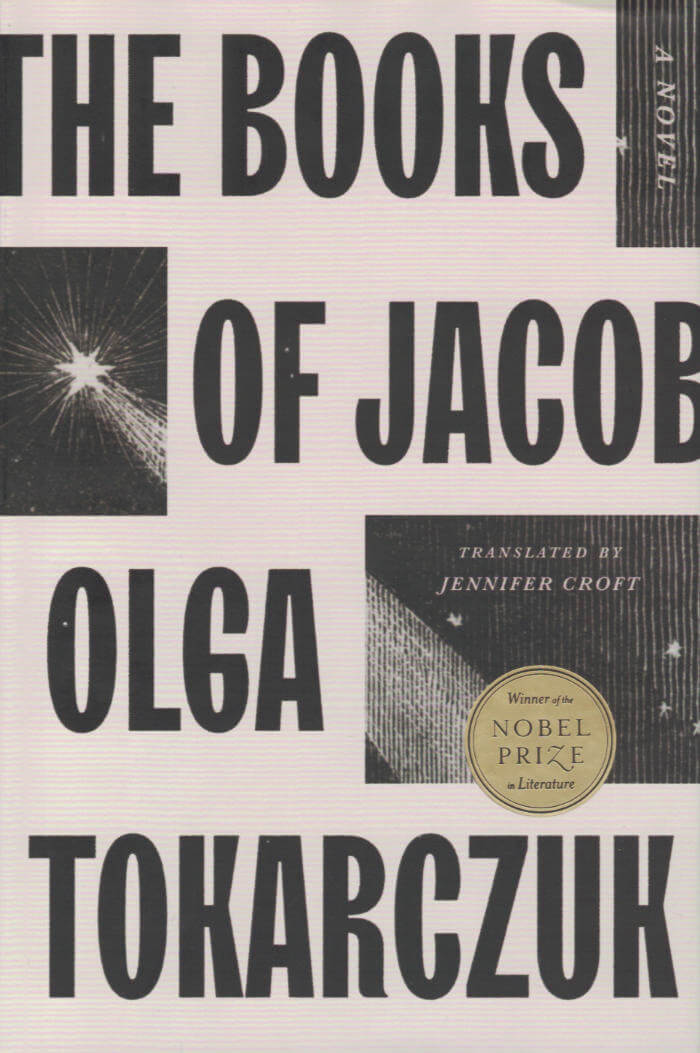
The Books Of Jacob
In the mid-eighteenth century, as new ideas, and a new unrest, begin to sweep the Continent, a young Jew of mysterious origins arrives in a village in Poland. Before long, he has changed not only his name but his persona; visited by what seem to be ecstatic experiences, Jacob Frank casts a charismatic spell that attracts an increasingly fervent following. In the decade to come, Frank will traverse the Hapsburg and Ottoman empires with throngs of disciples in his thrall as he reinvents himself again and again, converts to Islam and then Catholicism, is pilloried as a heretic and revered as the Messiah, and wreaks havoc on the conventional order, Jewish and Christian alike, with scandalous rumors of his sect's secret rituals and the spread of his increasingly iconoclastic beliefs. The story of Frank, a real historical figure around whom mystery and controversy swirl to this day, is the perfect canvas for the genius and unparalleled reach of Olga Tokarczuk. Narrated through the perspectives of his contemporaries, those who revere him, those who revile him, the friend who betrays him, the lone woman who sees him for what he is— The Books of Jacob captures a world on the cusp of precipitous change, searching for certainty and longing for transcendence.
In a nod to books written in Hebrew, The Books of Jacob is paginated in reverse, beginning on p. 955 and ending on p. 1 - but read traditionally, front cover to back.

Gedichten en gedachten in het Frans
Written in La Ferme Arpoix (Ceaux-en-Loudun) and Paris, 1998. Dedicated to Guy.
Staple bound, ltd. to 200 copies. Riso-printed on Munken Pure Rough 120gsm by Risiko Press in Borgerhout, covers silkscreened on Eskaboard by Maarten de With, copy editing by Sis Matthé, design by Kaye & Matthé, typeface: Elementa.
[The title of this book is in Dutch, the text is in French]
"Met dank aan Eliane Van De Velde en Marie-Sophie Beinke."
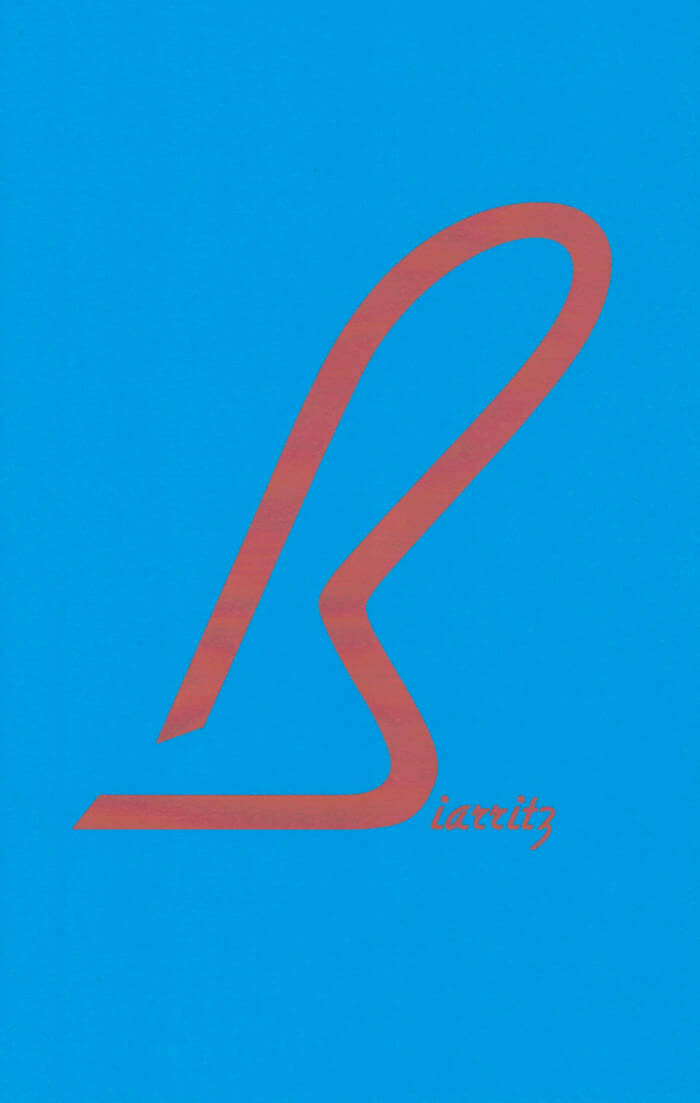
Biarritz
Written and edited in Biarritz, Borgerhout and Midsommarkransen, 2016—2021. Dedicated to Räffi, with much love. Another version of this text was published in Pfeil Magazin 10 (Montez Press, 2018); editor: Anja Dietmann, copy-editor: Stacy Skulnik. Epigraph from Numéro Deux (1975) by Anne-Marie Miéville and Jean-Luc Godard. Presented on Saturday February 5th 2022 at Kransen, Borgerhout.
128x201mm, 40p, staple bound. Riso-printed on Arcoprint Edizioni Avorio 90g and Clairefontaine Blue 210g. Design by Kaye–Matthé, typefaces: Tribute, Gillies Gothic Light. Printed by Risiko Press at Kransen, covers silkscreened at Afreux, bound by Drukkerijcollectief De Wrikker. Edition of around 200.

Les sous-communs – Planification fugitive et étude noire
A political and aesthetic critique of racial capitalism and modes of social experimentation in the form of resistance to the colonial commons.
Stefano Harney (born 1962) is Honorary Professor at The Institute of Gender, Race, Sexuality and Social Justice at the University of British Columbia and a Visiting Critic at Yale School of Art. He has held teaching positions in New York, Leicester, London, and Singapore. He now teaches at the Dutch Art Institute. An interdisciplinary scholar, his research spans (the intersections of) social sciences, arts and humanities, as well as the fields of business and management.
Preface by Jack Halberstam.
Collective translation (original title: The Undercommons: Fugitive Planning & Black Study, Minor Compositions, 2013).
Graphic design: Sophie Demay & Maël Fournier-Comte (In the Shade of a Tree).
published in February 2022
French edition
12,5 x 19,5 cm (softcover)
208 pages
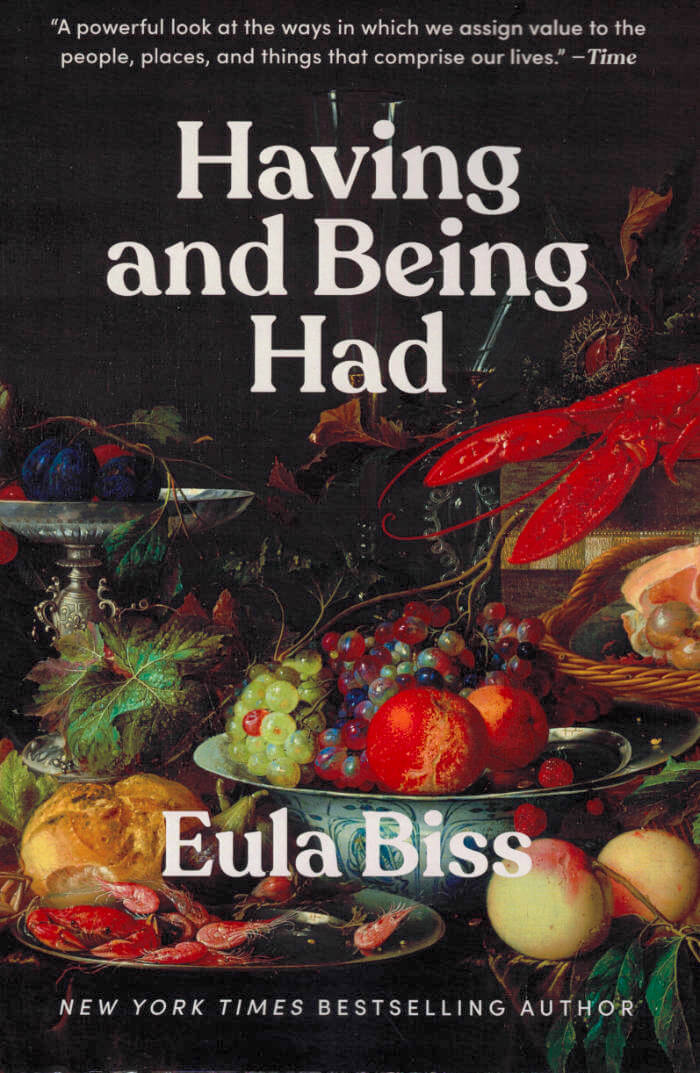
Having and Being Had
“My adult life can be divided into two distinct parts,” Eula Biss writes, “the time before I owned a washing machine and the time after.” Having just purchased her first home, the poet and essayist now embarks on a provocative exploration of the value system she has bought into. Through a series of engaging exchanges—in libraries and laundromats, over barstools and backyard fences—she examines our assumptions about class and property and the ways we internalize the demands of capitalism. Described by the New York Times as a writer who “advances from all sides, like a chess player,” Biss offers an uncommonly immersive and deeply revealing new portrait of work and luxury, of accumulation and consumption, of the value of time and how we spend it. Ranging from IKEA to Beyoncé to Pokemon, Biss asks, of both herself and her class, “In what have we invested?”
Eula Biss is the author of four books, including the New York Times bestseller On Immunity: An Inoculation, which was named one of the 10 Best Books of 2014 by The New York Times Book Review, and Notes from No Man's Land: American Essays, which won the National Book Critics Circle Award for criticism. Her work has appeared in Harper's Magazine, The New York Times, The Believer, and elsewhere, and has been supported by an NEA Literature Fellowship, a Howard Foundation Fellowship, and a Guggenheim Fellowship.

Spike #69 — Storytelling
There are three sides to every story: your side, my side, and the truth. But how does this formula stand up when competing interests are fighting for narrative control? Where does self-expression end and branding begin? Let’s rewrite the story of how stories are written. Spike’s cast includes a Pomeranian and a psychoanalyst, an anthropologist and anonymous Instagrammers. Their tales are varied (and variously faithful), but what business do we have going to bat for consensus reality? They break out of tired oppositions to embrace anxiety, headlessness, and nonsense. So stop fronting, set your subjectivity aside, and settle in for some show and tell. For better or worse, stories are a way of remaking – not just recounting – the world!
With contributions by Elizabeth A. Povinelli, Joshua Citarella, Tea Hacic-Vlahovic, Martin Herbert, Omar Kholeif, Ingrid Luquet-Gad, Sean Monahan, features on Tracey Emin, Sophie Calle, Julien Ceccaldi, Ho Tzu Nyen, and many more, as well as reviews from Hong Kong to Los Angeles to Vienna.
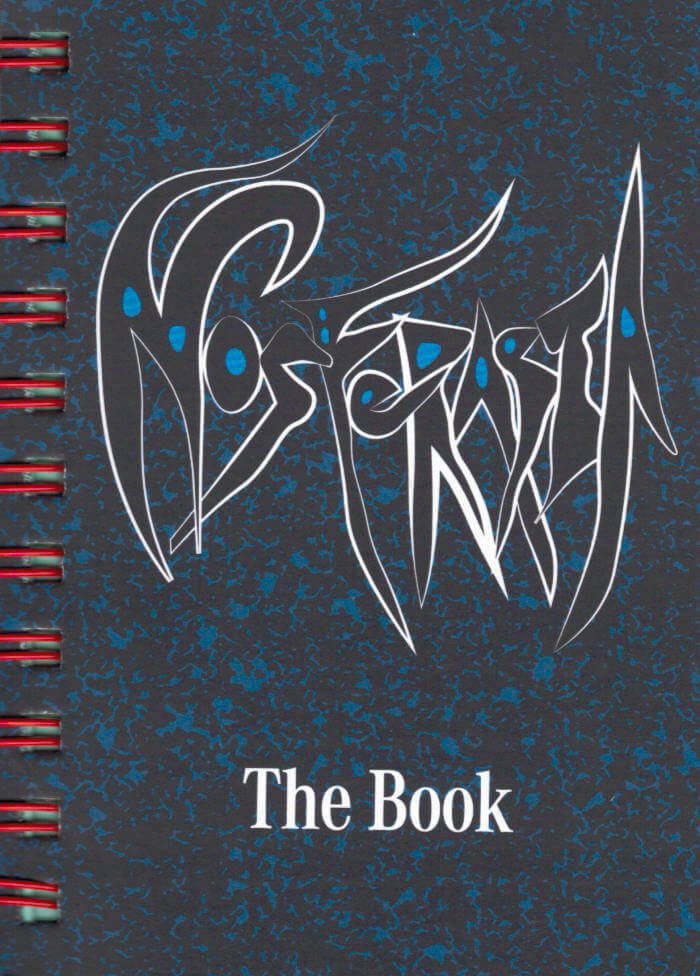
Nosferasta: The Book
Marking the first UK commission by Brooklyn-based filmmakers Adam Khalil and Bayley Sweitzer in collaboration with Oba, Gasworks has published a 176-page book that explores the ever-expanding vampiric universe of Nosferasta.
Spanning 500 years of colonial destruction, human trafficking and blood sucking, Nosferasta is a Rastafarian vampire film that reimagines Oba’s origin story in the late 15th century, when he is seduced by the vampire Christopher Columbus, ensuring his undying allegiance to the colonial project. Combining film forms and jumping across multiple timelines, Nosferasta examines the guilt of being complicit in imperial conquest, while acknowledging the extreme difficulty of unlearning centuries of vampiric conditioning. Ultimately, the film tackles an uncomfortable question:
How can you decolonise yourself, if it’s in your blood?
Interspersed with excerpts from Oba’s literacy diaries, Nosferasta: The Book features critical essays, speculative fiction and visual contributions by Peggy Ahwesh, Lou Cornum, Alex Esco, Sabel Gavaldon, Adam Khalil, Mutabaruka, Oba, Austin Sley Julian, Bayley Sweitzer, and Laura Vallés. Designed by fag tips (aka Virgil b/g Taylor).

Edgewise: A Picture of Cookie Mueller
Contributions by John Waters, Mink Stole, Gary Indiana, et al.
Cookie Mueller was a firecracker, a cult figure, a wit, a wild child, a writer, a go go dancer, a mother, an unlikely queer icon, an alchemist, a lightning rod in dark times. A child of suburban 50‘s Maryland and post-beatnik 60’s freakdom, she made her name first as an actress in the films of John Waters, and then as an art critic and columnist, a writer of hilarious and sublime stories and short fiction and a maven of the Downtown art world. Edgewise tells the story of Cookie‘s life through an oral history composed from over 80 interviews with the people who knew her. After tracing back some of the steps of the author’s 7-year trip in search of Cookie, the voices take us from the late 60’s artist communes of Baltimore to 70’s Provincetown where romantics and queers crawled the dunes and discos, to the sleepless creative high of post-industrial Bohemian New York, through 80‘s West Berlin and Positano, and into the depths and contradictions of Cookie’s life and loves.
Since her death from AIDS in 1989, Cookie’s work and life have made her an underground icon. Her original texts, first published by Hanuman Books and Semiotext(e), have been reprinted by Serpent’s Tail, and she is remembered for her appearances in the No Wave films and theater of Amos Poe, Michel Auder, Gary Indiana and others.
Along with the text, Edgewise consists of original artwork, unpublished photographs and archival material, and photo contributions by Philip-Lorca DiCorcia, David Armstrong, Robert Mapplethorpe, Peter Hujar and others.
Edgewise is a meditation on memory and story-telling.

Hypnotised: A Journey Through Trance Music 1990-2005
Trance has been the flagship for electronic music across the globe during the nineties and early zeroes. The sound’s trademark optimistic and euphoric aspects has brought some of the most compelling musical pieces of its time, and undoubtedly had a significant influence on future electronic music to come. Yet, its historical significance has been highly overlooked.
Hypnotised is the first encyclopedia to cover the global trance movement during its most prolific years. The 322-page book spans a near-complete discography of supposedly essential albums, labels and releases, alongside exclusive photos and in-depth interviews with influential artists and label owners.

The Well-Dressed Wound
A gleeful grotesquerie and savage satire, featuring Abraham and Mary Todd Lincoln and the Devil, along with Civil War dead, deconstructed couture, and gay ghosts.
The Well-Dressed Wound is Derek McCormack's play script "séance" a fashion show by the dead for the living. In the depths of the Civil War, in a theater in P. T. Barnum's American Museum on Broadway, Abraham and Mary Todd Lincoln participate in a staged spiritualistic rite. But the medium conducting them has invited along another being: the Devil, disguised as twentieth-century French fashionista Martin Margiela (aka "King Faggot"). What follows is the most fiendish runway show ever mounted, complete with war dead, deconstructed couture, and gay ghosts infected with all manner of infectious agents, including oozy AIDS.
While his previous fictions have explored the darker corners of country music, high fashion, and camp, The Well-Dressed Wound is McCormack's most radical work yet, occultishly evoking the evil-twin muses of transgressive literature, Kathy Acker and Pierre Guyotat. The creation thus conjured is a gleeful grotesquerie, a savage satire not so much of fashion as of death, a work that, as Bruce Hainley observes in Artforum, puts "the 'pus' back in opus." Here death and life spin on a viral double helix of contamination and couture, blistering and bandages, history and hysteria, semen and seams. "Being dead is so very now," Hainley opines. "This tiny tome (a time bomb, a tomb) is to die for and radically alive."

Mauve Desert
First published in 1987, Nicole Brossard's classic novel returns to Coach House in a new edition. A seminal text in Canadian and feminist literature, Mauve Desert is a must-read for readers and writers alike.
This is both a single novel and three separate novels in one. In the first, Mauve Desert, fifteen-year-old Mélanie drives across the Arizona desert in a white Meteor chasing fear and desire, cutting loose from her mother and her mother's lover, Lorna, in their roadside Mauve Motel. In the second book, Maudes Laures reads Mauve Desert, becomes obsessed with it, and embarks on an extraordinary quest for its mysterious author, characters and meaning. The third book - Mauve, the horizon - is Laures's eventual translation of Mauve Desert. Like all good translations, it is both the same and revealingly different from the original.
Nicole Brossard's writing is agile and inventive; from moment to moment gripping, exhilarating and erotic. Her language drifts and swells like sand dunes in a desert, cresting and accumulating into a landscape that shifts like wind and words; she translates the practice of translation, the pulse of desire.

Le Chauffage — Issue #2
Francesca Percival, Felix Rapp and 1 more
Le Chauffage (french for “The Heater”) is an artist-run publication based in Brussels and Vancouver. It is conceived as a cross-continental, community oriented platform. Le Chauffage brings together the work and writing of artists / friends from different cities with the intent to spark discussion and fuel casual forms of critical discourse.
The second issue of Le Chauffage contains photographs and texts, photographs of text, photographs as text and vice versa. Loosely thinking through the format of The Photo Essay celebrated by John Szarkowski in an eponymously titled exhibition at MoMA in 1965, this issue considers some of the artistic possibilities that can be found in such an archaic and historically male-dominated form.
Many of the contributions that make up this second issue are not photo essays per se. But each one of them considers the printed page as a space in its own right. The magazine becomes an interior where words and images entertain a malleable and distinctly porous relationship. At times, it is also a space where artists and writers from different cities were invited to meet and collaborate. And since interest in other people is also an interest in yourself, it is always unclear who is really transforming who?
Contributions by: Bob Cain & Linda Miller, Moyra Davey, Laurie Kang, Niklas Taleb, Madeleine Paré & Diane Severin Nguyen, Josephine Pryde, Slow Reading Club, Ken Lum, Isaac Thomas, Vijai Maia Patchineelam, Artun Alaska Arasli & Graeme Wahn, Stephen Waddell, Maya Beaudry & Chloe Chignell, Lisa Robertson, groana melendez, Victoria Antoinette Megens and Will Holder.
Editors: Emile Rubino and Felix Rapp
Co-Editor: Francesca Percival
Design: Francesca Percival and Felix Rapp
Cover Design: Francesca Percival
Printed by: Cassochrome, Belgium
Edition of 350

Beyond the World's End
In Beyond the World's End T. J. Demos explores cultural practices that provide radical propositions for living in a world beset by environmental and political crises.
Rethinking relationships between aesthetics and an expanded political ecology that foregrounds just futurity, Demos examines how contemporary artists are diversely addressing urgent themes, including John Akomfrah's cinematic entanglements of racial capitalism with current environmental threats, the visual politics of climate refugees in work by Forensic Architecture and Teddy Cruz and Fonna Forman, and moving images of Afrofuturist climate justice in projects by Arthur Jafa and Martine Syms.
Demos considers video and mixed-media art that responds to resource extraction in works by Angela Melitopoulos, Allora & Calzadilla, and Ursula Biemann, as well as the multispecies ecologies of Terike Haapoja and Public Studio. Throughout Demos contends that contemporary intersections of aesthetics and politics, as exemplified in the Standing Rock #NoDAPL campaign and the Zad's autonomous zone in France, are creating the imaginaries that will be crucial to building a socially just and flourishing future.
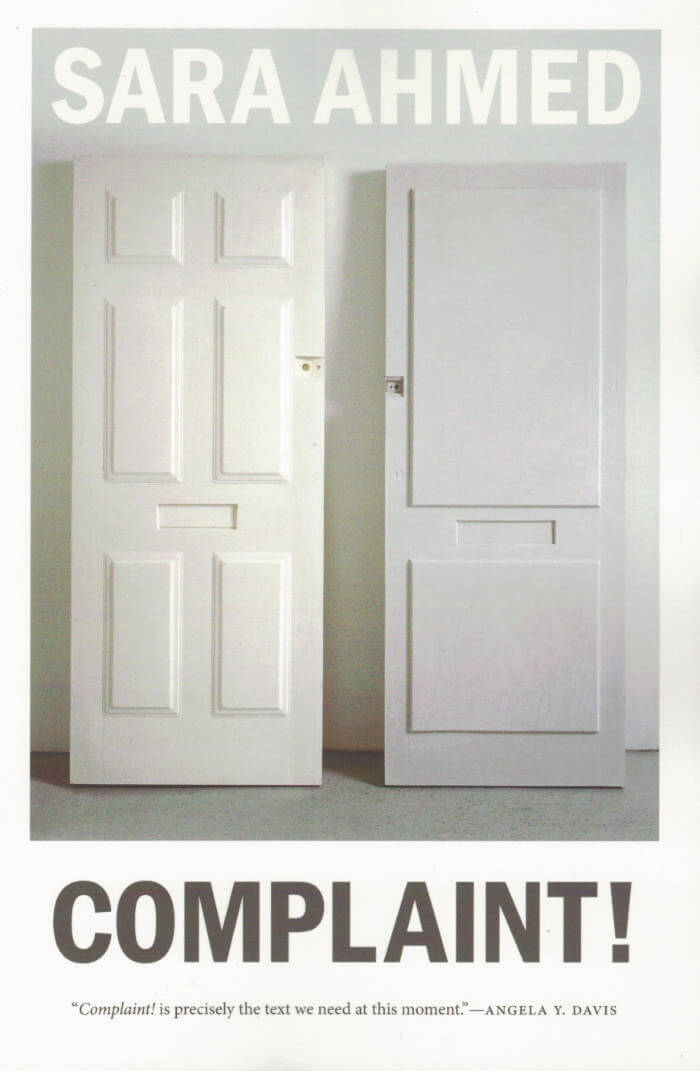
Complaint!
In Complaint! Sara Ahmed examines what we can learn about power from those who complain about abuses of power.
Drawing on oral and written testimonies from academics and students who have made complaints about harassment, bullying, and unequal working conditions at universities, Ahmed explores the gap between what is supposed to happen when complaints are made and what actually happens. To make complaints within institutions is to learn how they work and for whom they work: complaint as feminist pedagogy. Ahmed explores how complaints are made behind closed doors and how doors are often closed on those who complain. To open these doors—to get complaints through, keep them going, or keep them alive—Ahmed emphasizes, requires forming new kinds of collectives.
This book offers a systematic analysis of the methods used to stop complaints and a powerful and poetic meditation on what complaints can be used to do. Following a long lineage of Black feminist and feminist of color critiques of the university, Ahmed delivers a timely consideration of how institutional change becomes possible and why it is necessary.

Writing in Space, 1973–2019
Writing in Space, 1973-2019 gathers the writings of conceptual artist Lorraine O'Grady, who for over forty years has investigated the complicated relationship between text and image.
A firsthand account of O'Grady's wide-ranging practice, this volume contains statements, scripts, and previously unpublished notes charting the development of her performance work and conceptual photography; her art and music criticism that appeared in the Village Voice and Artforum; critical and theoretical essays on art and culture, including her classic "Olympia's Maid"; and interviews in which O'Grady maps, expands, and complicates the intellectual terrain of her work. She examines issues ranging from black female subjectivity to diaspora and race and representation in contemporary art, exploring both their personal and their institutional implications.
O'Grady's writings—introduced in this collection by critic and curator Aruna D'Souza—offer a unique window into her artistic and intellectual evolution while consistently plumbing the political possibilities of art.
Edited by Aruna D'Souza
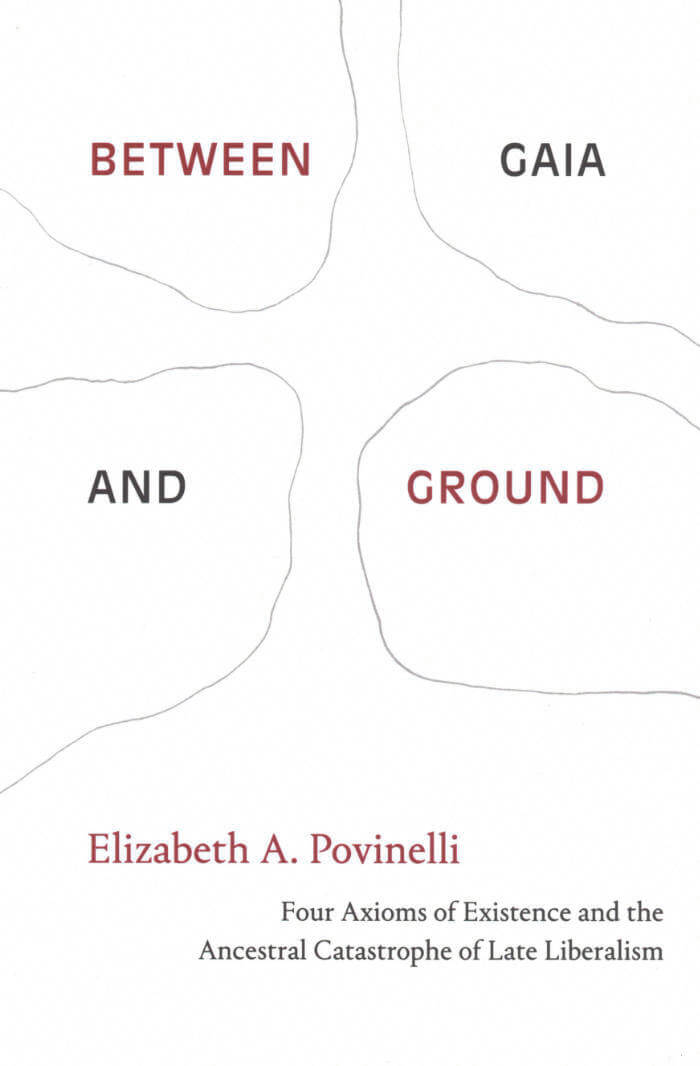
Between Gaia and Ground
In Between Gaia and Ground Elizabeth A. Povinelli theorizes the climatic, environmental, viral, and social catastrophe present as an ancestral catastrophe through which that Indigenous and colonized peoples have been suffering for centuries. In this way, the violence and philosophies the West relies on now threaten the West itself.
Engaging with the work of Glissant, Deleuze and Guattari, Césaire, and Arendt, Povinelli highlights four axioms of existence—the entanglement of existence, the unequal distribution of power, the collapse of the event as essential to political thought, and the legacies of racial and colonial histories. She traces these axioms' inspiration in anticolonial struggles against the dispossession and extraction that have ruined the lived conditions for many on the planet. By examining the dynamic and unfolding forms of late liberal violence, Povinelli attends to a vital set of questions about changing environmental conditions, the legacies of violence, and the limits of inherited Western social theory.
Between Gaia and Ground also includes a glossary of the keywords and concepts that Povinelli has developed throughout her work.
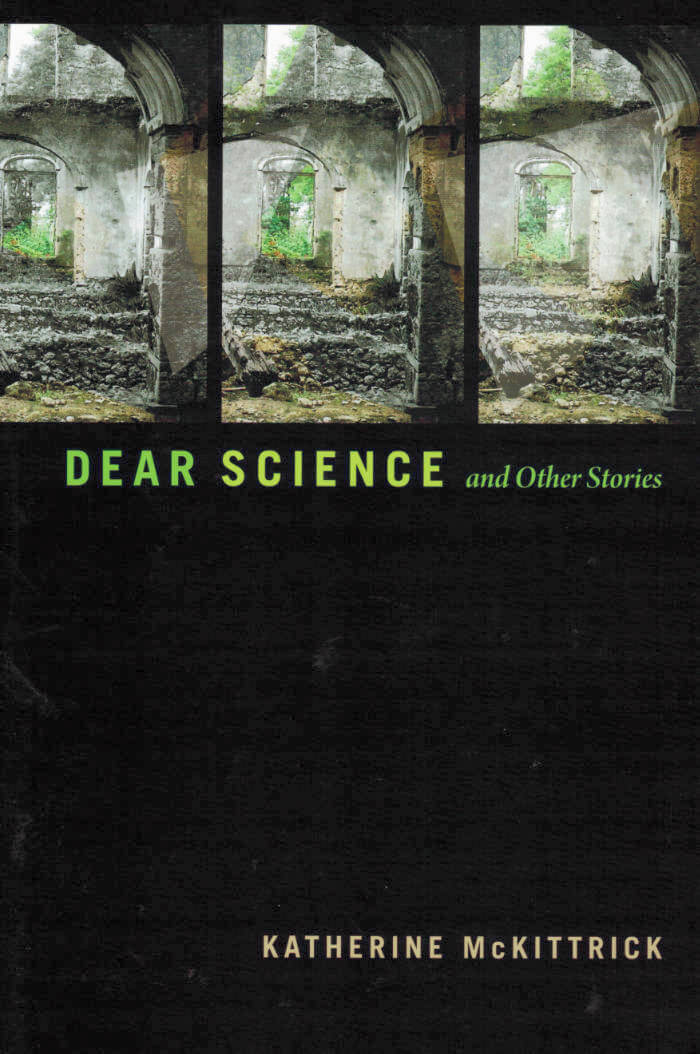
Dear Science and Other Stories
In Dear Science and Other Stories Katherine McKittrick presents a creative and rigorous study of black and anticolonial methodologies. Drawing on black studies, studies of race, cultural geography, and black feminism as well as a mix of methods, citational practices, and theoretical frameworks, she positions black storytelling and stories as strategies of invention and collaboration.
She analyzes a number of texts from intellectuals and artists ranging from Sylvia Wynter to the electronica band Drexciya to explore how narratives of imprecision and relationality interrupt knowledge systems that seek to observe, index, know, and discipline blackness. Throughout, McKittrick offers curiosity, wonder, citations, numbers, playlists, friendship, poetry, inquiry, song, grooves, and anticolonial chronologies as interdisciplinary codes that entwine with the academic form.
Suggesting that black life and black livingness are, in themselves, rebellious methodologies, McKittrick imagines without totally disclosing the ways in which black intellectuals invent ways of living outside prevailing knowledge systems.
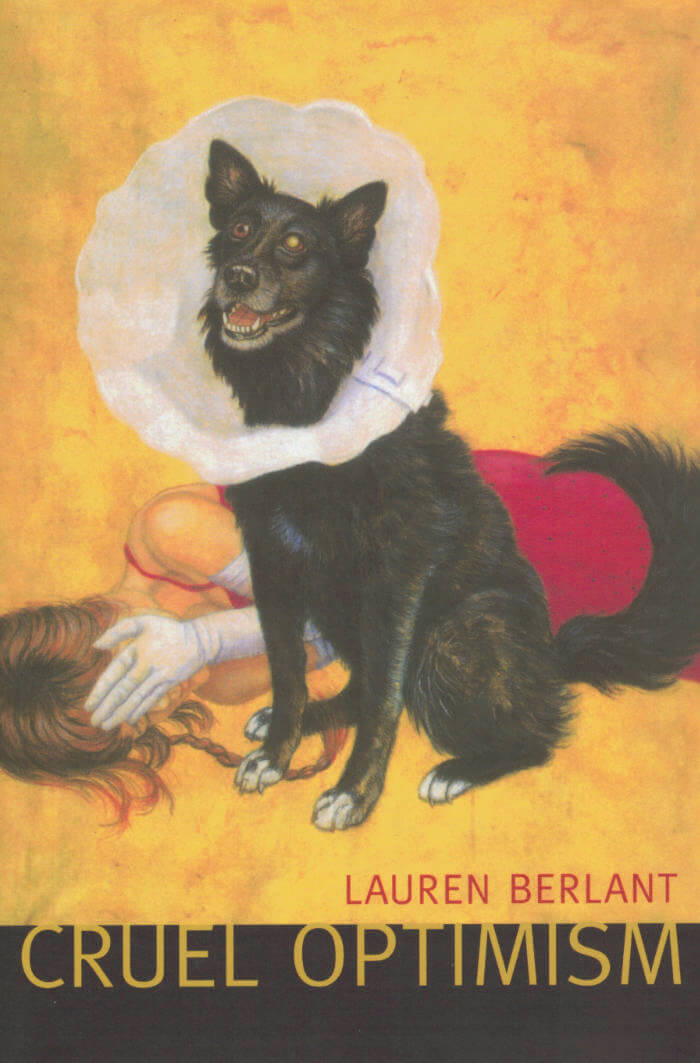
Cruel Optimism
A relation of cruel optimism exists when something you desire is actually an obstacle to your flourishing. Offering bold new ways of conceiving the present, Lauren Berlant describes the cruel optimism that has prevailed since the 1980s, as the social-democratic promise of the postwar period in the United States and Europe has retracted. People have remained attached to unachievable fantasies of the good life—with its promises of upward mobility, job security, political and social equality, and durable intimacy—despite evidence that liberal-capitalist societies can no longer be counted on to provide opportunities for individuals to make their lives “add up to something.”
Arguing that the historical present is perceived affectively before it is understood in any other way, Berlant traces affective and aesthetic responses to the dramas of adjustment that unfold amid talk of precarity, contingency, and crisis. She suggests that our stretched-out present is characterized by new modes of temporality, and she explains why trauma theory—with its focus on reactions to the exceptional event that shatters the ordinary—is not useful for understanding the ways that people adjust over time, once crisis itself has become ordinary. Cruel Optimism is a remarkable affective history of the present.

The Queer Art of Failure
The Queer Art of Failure is about finding alternatives—to conventional understandings of success in a heteronormative, capitalist society; to academic disciplines that confirm what is already known according to approved methods of knowing; and to cultural criticism that claims to break new ground but cleaves to conventional archives.
Jack Halberstam proposes “low theory” as a mode of thinking and writing that operates at many different levels at once. Low theory is derived from eccentric archives. It runs the risk of not being taken seriously. It entails a willingness to fail and to lose one’s way, to pursue difficult questions about complicity, and to find counterintuitive forms of resistance.
Tacking back and forth between high theory and low theory, high culture and low culture, Halberstam looks for the unexpected and subversive in popular culture, avant-garde performance, and queer art. Halberstam pays particular attention to animated children’s films, revealing narratives filled with unexpected encounters between the childish, the transformative, and the queer. Failure sometimes offers more creative, cooperative, and surprising ways of being in the world, even as it forces us to face the dark side of life, love, and libido.

Anemones: A Simone Weil Project
The author’s research on troubadour poetry yields this experiment in thinking ‘near and with’ philosopher and political activist Simone Weil. Moving between the epistolary, poetry, performance and scholarly research, it centres on a new translation of Weil’s 1942 essay ‘What the Occitan Inspiration Consists Of’ that elevates the troubadour concept of love to a practice of political resistance rejecting force in all its forms. Robertson dwells on the transhistorical potential of this concept from the violent context in which it emerged to the troubling conditions of the present. Embracing actualised and suppressed histories, the work testifies to words, friendship and readership as resistance across distances.
With a contribution by Benny Nemer
Design: Rietlanden Women’s Office

Maquillage as Meditation: Carmelo Bene and the Undead
Partly a script, partly a personal voyage into the psyche of diseducation, this book happens, has happened and will happen on the 31st of October in a place called ‘The Palace of Melancholy’. In this temporal and spatial loop, the figure of Italian actor, author, director, philosopher, and public persona Carmelo Bene is summoned to hopefully be dismissed once and for all. Bene is looked at by the author reluctantly and yet resolutely through inner voices of dissent, shame and rebellion. He is imagined in gatherings that didn’t happen and read through an epistemology of contradiction. In Giannini’s company and support, Snejanka Mihaylova, Jacopo Miliani, and Arnisa Zeqo probe the walls of the Palace, looking for an exit.